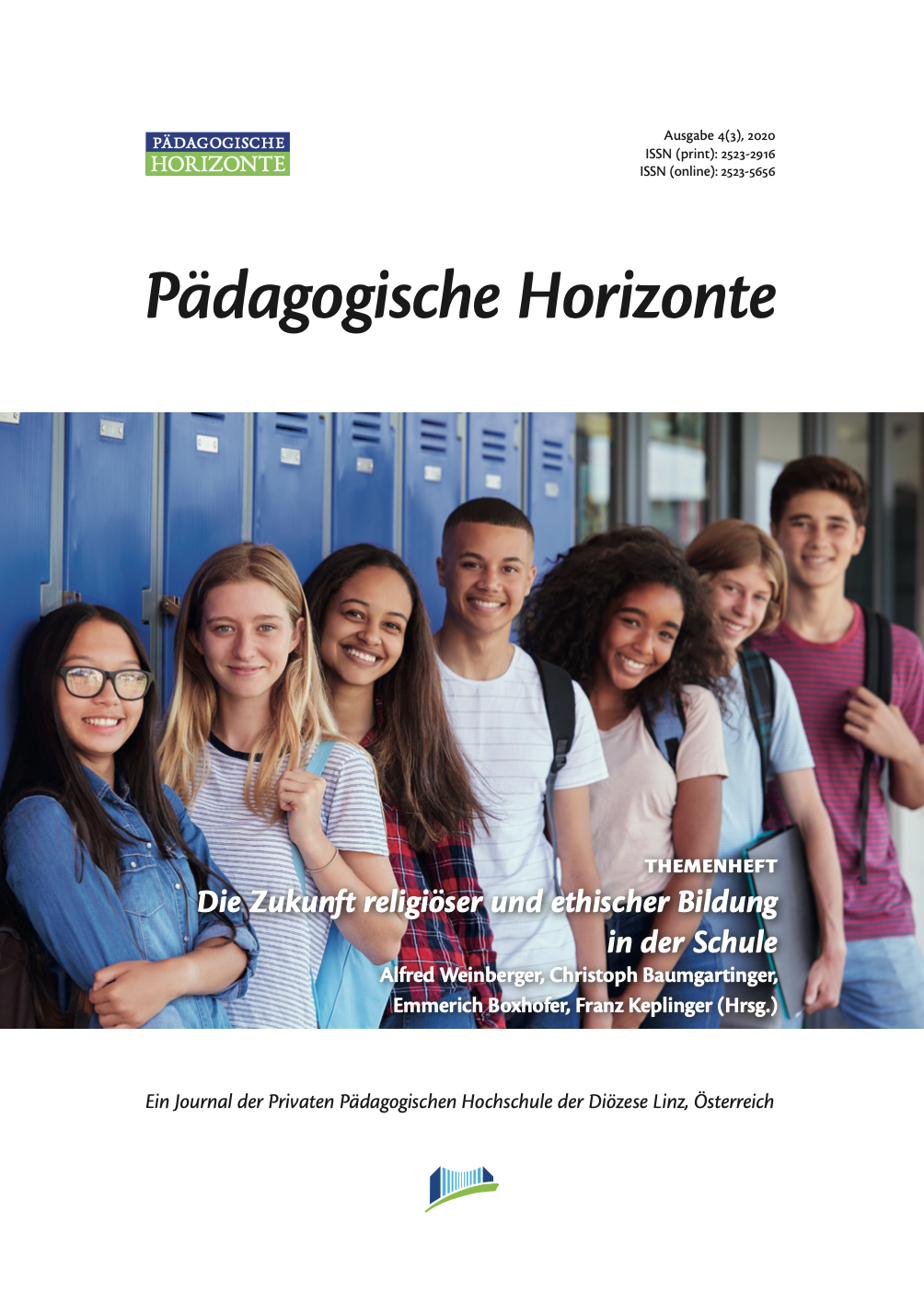United in Diversity. Moral Pluralism as Precondition and Challenge for Ethical Education
Keywords:
morality, moral pluralism, ethical education, moral education, human rights, communityAbstract
Terms such as 'plurality', 'pluralism' or 'diversity' have (also) become key terms in pedagogy. However, they are usually applied to cultural, religious, ethnic, linguistic or socio-economic differences; the phenomenon of moral pluralism is less in focus. But students as well as teachers contribute highly diverse moral norms, concepts, ideals and beliefs to ethical education processes; however, these do not simply differentiate according to religious or cultural boundaries: moral plurality runs across religions, cultures or social groups.
While religion, culture or language can coexist more easily, moral norms usually claim general validity. The diversity of moral positions therefore poses a particular challenge to ethical education. Building on current approaches and findings in moral and social psychology 'post Kohlberg', the article will deal with the following topics: How can 'moral pluralism' be defined? What theoretical approaches are currently being discussed to describe, systematize and explain moral pluralism? What are the consequences for the conception of ethical education in schools?



